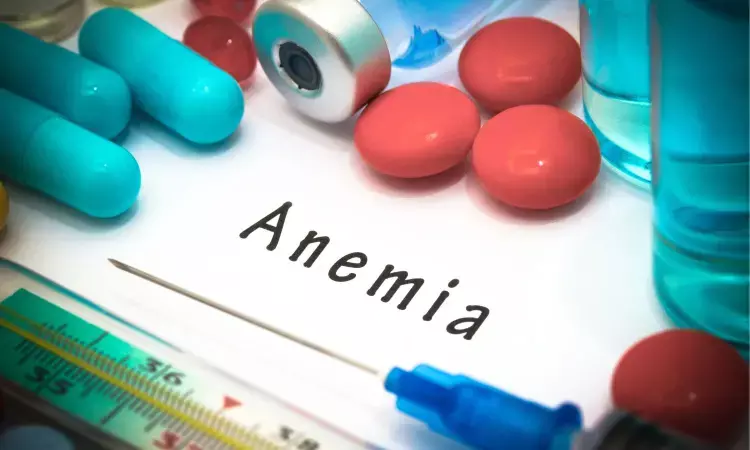- Home
- Medical news & Guidelines
- Anesthesiology
- Cardiology and CTVS
- Critical Care
- Dentistry
- Dermatology
- Diabetes and Endocrinology
- ENT
- Gastroenterology
- Medicine
- Nephrology
- Neurology
- Obstretics-Gynaecology
- Oncology
- Ophthalmology
- Orthopaedics
- Pediatrics-Neonatology
- Psychiatry
- Pulmonology
- Radiology
- Surgery
- Urology
- Laboratory Medicine
- Diet
- Nursing
- Paramedical
- Physiotherapy
- Health news
- Fact Check
- Bone Health Fact Check
- Brain Health Fact Check
- Cancer Related Fact Check
- Child Care Fact Check
- Dental and oral health fact check
- Diabetes and metabolic health fact check
- Diet and Nutrition Fact Check
- Eye and ENT Care Fact Check
- Fitness fact check
- Gut health fact check
- Heart health fact check
- Kidney health fact check
- Medical education fact check
- Men's health fact check
- Respiratory fact check
- Skin and hair care fact check
- Vaccine and Immunization fact check
- Women's health fact check
- AYUSH
- State News
- Andaman and Nicobar Islands
- Andhra Pradesh
- Arunachal Pradesh
- Assam
- Bihar
- Chandigarh
- Chattisgarh
- Dadra and Nagar Haveli
- Daman and Diu
- Delhi
- Goa
- Gujarat
- Haryana
- Himachal Pradesh
- Jammu & Kashmir
- Jharkhand
- Karnataka
- Kerala
- Ladakh
- Lakshadweep
- Madhya Pradesh
- Maharashtra
- Manipur
- Meghalaya
- Mizoram
- Nagaland
- Odisha
- Puducherry
- Punjab
- Rajasthan
- Sikkim
- Tamil Nadu
- Telangana
- Tripura
- Uttar Pradesh
- Uttrakhand
- West Bengal
- Medical Education
- Industry
Ferric Citrate Hydrate Shows High Efficacy and Tolerability in Treating Iron Deficiency Anemia: Study

Japan: Researchers have found in a recent multicenter, open-label, single-arm study that Ferric citrate hydrate (FCH) treatment achieved an 80% hemoglobin target success rate by week 4 in patients with iron deficiency anemia (IDA). The study highlighted that FCH demonstrated better tolerability and compliance, primarily due to a reduced risk of gastrointestinal side effects, leading to a high medication completion rate among patients.
The study, conducted across multiple centers in Japan and published in Advances in Therapy, was led by Dr. Osamu Wada-Hiraike from the Department of Obstetrics and Gynecology at the University of Tokyo. It specifically focused on women with IDA who had previously experienced nausea and vomiting after using conventional oral iron supplements.
A total of 30 Japanese female participants who had difficulty tolerating previous iron therapies were enrolled. Each received 500 mg of FCH orally per day, with some extending to 1,000 mg/day based on clinical need. Patients with hemoglobin levels ≥11.0 g/dL completed the treatment at four weeks, while those below that threshold continued up to eight weeks.
The study revealed the following findings:
- The primary outcome—medication completion rate—was impressively 100%, with all participants successfully completing the prescribed FCH treatment.
- The average medication compliance rate was 93.92%, reflecting strong adherence to the regimen.
- The severity of nausea decreased significantly, from an average score of 5.7 to 1.7.
- The incidence of nausea and vomiting dropped from 100% to 63.3% after switching to FCH.
- The proportion of patients who reported that nausea or vomiting did not interfere with daily life rose from 6.7% to 52.6%.
- 80% of participants expressed greater satisfaction with FCH compared to their previous oral iron supplements.
- Quality of life improved across all eight subscales of the Short-Form 36-Item Health Survey v2, with significant gains in six of them.
- Nine adverse drug reactions were reported in six patients, including mild nausea in three cases.
- None of the adverse events were serious or resulted in discontinuation of treatment.
The findings suggest that FCH could be a promising alternative for patients unable to tolerate traditional oral iron preparations. According to the authors, switching to FCH not only minimized gastrointestinal discomfort but also improved adherence, enabling more consistent management of anemia.
The study concludes that Ferric citrate hydrate may serve as a less burdensome and more sustainable first-line therapy for iron deficiency anemia, especially in individuals who have previously struggled with intolerance to standard oral iron options.
Reference:
Wada-Hiraike, O., Maruyama, A., Mitobe, Y. et al. A Multicenter Single-Arm Study of Switching to Ferric Citrate Hydrate for Iron Deficiency Anemia in Patients Intolerant to Oral Iron: RIO-SWITCH. Adv Ther 42, 2150–2167 (2025). https://doi.org/10.1007/s12325-025-03123-9
Dr Kamal Kant Kohli-MBBS, DTCD- a chest specialist with more than 30 years of practice and a flair for writing clinical articles, Dr Kamal Kant Kohli joined Medical Dialogues as a Chief Editor of Medical News. Besides writing articles, as an editor, he proofreads and verifies all the medical content published on Medical Dialogues including those coming from journals, studies,medical conferences,guidelines etc. Email: drkohli@medicaldialogues.in. Contact no. 011-43720751


